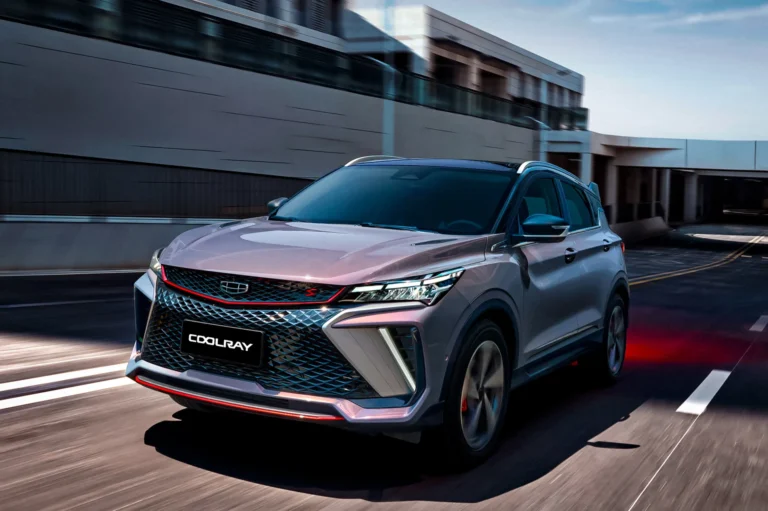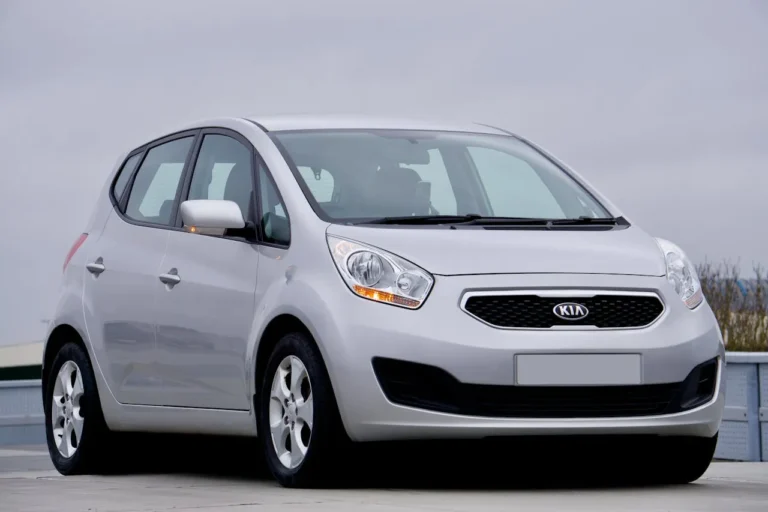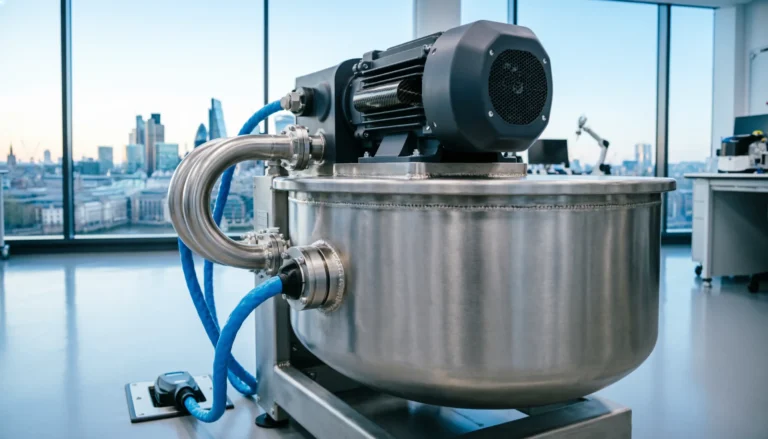
MINI USA Leads 2025 Industry Study in Service Scheduling Effectiveness
The ability to schedule a vehicle service appointment easily and reliably has become one of the defining elements of dealership success in today’s auto industry. For many customers, the service experience is the cornerstone of long-term brand loyalty, often outweighing even the sales process. Recognizing this, Pied Piper, a well-known authority on measuring dealership performance, introduced its first-ever 2025 PSI® Service Scheduling Effectiveness™ (SSE™) Auto Industry Study.
The study is unique in that it combines two previously separate evaluations: Service Website Effectiveness™ (SWE™) and Service Telephone Effectiveness® (STE®). Together, these metrics create a holistic measure of how well a dealership ensures customers can book service appointments conveniently across both online and phone channels.
And the biggest winner in this inaugural 2025 ranking? MINI USA, which achieved the highest overall score among all major automotive brands.
How the Study Was Conducted
Pied Piper carried out an extensive research effort, submitting 4,887 service requests to dealerships across all major auto brands. Each dealership was tested via both phone and web, with evaluators measuring whether customers could secure an appointment, how quickly they could do so, and whether best practices were followed—such as providing confirmations or upselling relevant services.
- SWE (Service Website Effectiveness™) and STE (Service Telephone Effectiveness®) scores ranged from 0 to 100.
- Scores were weighted based on practices most closely tied to service revenue and customer satisfaction.
- The two scores were then combined into the SSE (Service Scheduling Effectiveness™) score, which reflects the average performance of each brand’s dealerships.
This approach acknowledges the dual reality of today’s service landscape: some customers prefer quick, digital interactions, while others still rely heavily on phone conversations to handle more nuanced issues.
Why MINI USA Came Out on Top
MINI emerged as the top-performing brand overall, securing an SSE score of 66, which was seven points above the industry average.
Balanced Strength Across Both Channels
Unlike some brands that excelled in either online or phone scheduling but faltered in the other, MINI demonstrated balanced competence:
- 2nd place in SWE (web scheduling) with a score of 68.
- 3rd place in STE (phone scheduling) with a score of 64.
This balance made MINI the clear winner in the overall SSE ranking.
Faster Appointment Availability
One standout area for MINI was appointment wait times. The brand’s dealerships offered the earliest available slots on average in just 1.9 days, compared to an industry average of 3.5 days. For busy customers who prioritize convenience, this kind of responsiveness builds lasting trust.
Stronger Follow-Up Practices
Another key driver was MINI’s use of confirmations. About 60% of MINI dealerships sent both email and text confirmations, compared to the industry average of just 40%. These small touches significantly reduce uncertainty and make customers feel confident their appointment is secured.
Why Measuring Both Website and Phone Matters
Despite the rise of online tools, two-thirds of customers still book service by phone, especially when issues are complex or urgent. Online scheduling, however, is becoming the go-to method for routine services like oil changes or tire rotations.
Each channel has its pitfalls:
- Websites often fail due to technical glitches, unclear navigation, or missing confirmation processes.
- Phone calls sometimes result in long hold times, voicemail dead ends, or confusing automated systems.
Cameron O’Hagan, Pied Piper’s Vice President of Metrics and Analytics, put it succinctly:
Automated phone and website service systems often fail without anyone noticing. For example, dealers for many brands are inconsistent in sending follow-up confirmations for service scheduled online—yet those messages are critical for reassuring customers that their dealership is ready and expecting them.”
By measuring both, the SSE study paints a realistic picture of how customers actually experience service scheduling.
Website Scheduling: Key Findings
The Service Website Effectiveness (SWE) portion of the study revealed significant gaps between top and bottom performers.
- Porsche Ranked #1: With an SWE score of 71, Porsche dealerships outperformed the industry average by 12 points. They also led in sending text confirmations, doing so 72% of the time.
- Failure to Book: On average, 9% of customers could not schedule online due to issues like calendar errors, VIN requirements, or broken systems. Some brands failed as often as 36% of the time.
- Confirmation Gaps: Only 44% of customers received both email and text confirmations industrywide. Emails were more common (84%), while texts lagged (48%). Volvo excelled in email confirmations (96%), while Porsche led in texts.
- Cancellation & Modification Challenges: Roughly 1 in 4 websites lacked a clear option to cancel or change an appointment. Rates varied dramatically by brand, from 42% to 96%.
Telephone Scheduling: Key Findings
The Service Telephone Effectiveness (STE) portion also showed stark differences.
- Lexus Ranked #1: Lexus dealerships achieved an STE score of 68, ten points above the industry average. They successfully scheduled appointments 91% of the time and led the industry in proactive upselling (31%).
- Upselling Rare Overall: Across all brands, service associates only upsold additional services during 18% of calls, with some brands dropping as low as 3%.
- Customer Frustration: About 19% of customers could not schedule an appointment by phone at all. Problems included long hold times, voicemail loops, or VIN requirements. By contrast, Lexus and Subaru managed to avoid these pitfalls over 90% of the time.
Brand Comparisons Across Metrics
The study also highlighted brand-level differences:
- Web Success Rates: Mazda, Cadillac, Volvo, Toyota, Subaru, BMW, Mercedes-Benz, and Porsche allowed customers to book online more than 95% of the time. On the other end, Kia, Dodge, Ram, Lincoln, and Alfa Romeo all struggled, failing more than 15% of the time.
- Email & Text Confirmations: Volvo, Porsche, Cadillac, and Subaru reliably sent confirmations more than 95% of the time, while Lincoln, Dodge, and Alfa Romeo fell below 75%.
- Ease of Cancellations: Volvo, Mazda, Cadillac, Porsche, and Volkswagen gave customers clear options more than 90% of the time, but Fiat, Dodge, Mitsubishi, Chrysler, Ram, and Alfa Romeo lagged below 70%.
- Quick Phone Access: Surprisingly, Alfa Romeo, Fiat, Jeep, and Mitsubishi were the fastest at connecting customers to a live associate within a minute over 70% of the time. Meanwhile, premium brands like Lexus, Land Rover, and Audi often kept customers waiting longer.
- Appointment Success by Phone: Lexus, Subaru, Honda, Volkswagen, Toyota, and Mercedes-Benz succeeded more than 85% of the time, while Genesis, Alfa Romeo, Lincoln, and Ram often failed to deliver.
- Shortest Wait Times: Lexus, MINI, and Nissan offered appointments in fewer than two days on average. In contrast, Dodge, Ram, Volvo, and Genesis made customers wait more than five days.
What This Means for the Industry
The 2025 SSE study provides actionable insights for automakers and dealers. The message is clear: customer convenience is non-negotiable. Whether a customer clicks a button or dials a number, they expect a quick, seamless, and confirmed appointment process.
Brands like MINI, Lexus, and Porsche are setting new benchmarks by excelling in both technology and human interaction. At the same time, underperforming brands risk losing service revenue and long-term loyalty if they fail to fix gaps in scheduling efficiency.
For customers, these rankings reveal which brands are most likely to deliver a hassle-free service experience—something increasingly critical as vehicles become more complex and require more specialized maintenance.







